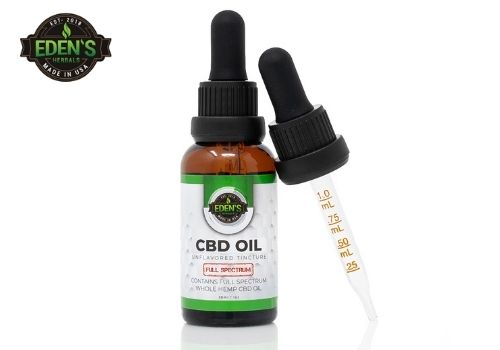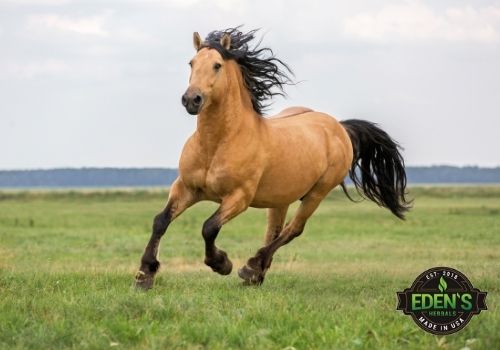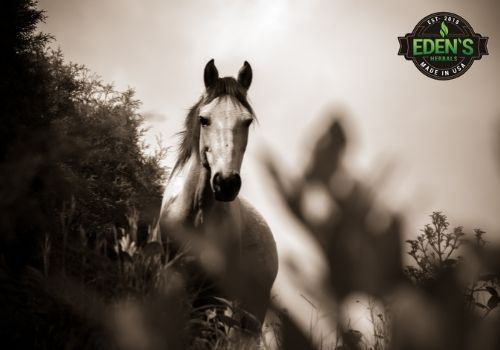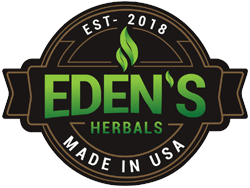 CBD's near stratospheric growth in popularity has surprised many experts worldwide as the supplement's popularity grew faster than that of most other suited supplements. Surveys have found that 1 in 3 adults have tried CBD, and a significant majority have heard of the compound.
CBD's near stratospheric growth in popularity has surprised many experts worldwide as the supplement's popularity grew faster than that of most other suited supplements. Surveys have found that 1 in 3 adults have tried CBD, and a significant majority have heard of the compound.
One of the most remarkable things about CBD is that it isn't just humans who are using the substance. Meaning it isn't just humans who may benefit from it.
Some studies have found CBD for animals to show potential benefits. Among those studies is a limited amount of evidence that indicates that CBD may be beneficial for horses.
How Can CBD Help Horses?
In theory, CBD can help horses the same way it may help humans, dogs, and other animals: By working with a horse's Endocannabinoid System.
All humans and many animals have an Endocannabinoid System, and horses are no exception. Like humans, a horse's Endocannabinoid System works by creating cannabinoids inside the body.
 The cannabinoids will then bind to existing cannabinoid receptors, creating various reactions inside the horse's body. These reactions may include: improved regulation of pain, reduced anxiety, better-controlled inflammation, and more.
The cannabinoids will then bind to existing cannabinoid receptors, creating various reactions inside the horse's body. These reactions may include: improved regulation of pain, reduced anxiety, better-controlled inflammation, and more.
If this is indeed the case, it is clear that CBD may have a very positive impact on a horse. CBD has been found to alter the way in which the body's cannabinoids bind to cannabinoids receptors that are found throughout the body.
Thus, making the body's produced cannabinoids bind to the body's cannabinoid receptors for longer periods of time and increasing the strength of that bind. This, in turn, may increase the benefits of the Endocannabinoid System.
By giving your horse CBD, you could be exposing them to these benefits. This could help calm a horse's anxiety, reduce pain levels, and decrease inflammation. This, in turn, could make it easier for a horse to move and increase its quality of life.
CBD either contains low or no THC, meaning that you don't have to worry about getting your horse high or otherwise intoxicated.
What is the Evidence For Showing CBD's Potential For Horses?
 Here is where the limits of the CBD market come into play: As of yet, there are no horse-specific studies on the benefits or potential harms that CBD can cause to a horse.
Here is where the limits of the CBD market come into play: As of yet, there are no horse-specific studies on the benefits or potential harms that CBD can cause to a horse.
That's not to say there are no studies at all on animals. Smaller studies - like those conducted on dogs - have found that CBD can benefit dogs by reducing seizures.
A variety of tests and studies have been done in humans that have found that CBD can reduce inflammation and pain while also improving mood and sleep. Similar overviews have found CBD to be safe, non-intoxicating, and non-habit forming.
This is not to say that CBD is completely free from any dangers, and there are concerns over CBD and drug interactions in humans. This helps explain why you should always speak with your horse's veterinarian before considering giving them CBD. However, per FDA regulations, no definitive medical claims can be made on the benefits of CBD, except for its ability to reduce seizures.
The evidence conducted on CBD in terms of its seizure reduction powers may be the most definitive area where its benefits have been determined.
Considerations Before Giving CBD to your Horse
First: Talk with your veterinarian. Just like you would never take any new supplement for yourself before speaking with a medical professional. You should never give a supplement to a horse without talking to its veterinarian. Your horse's vet may be aware of additional research, have alternative recommendations, or give you reasons to reconsider CBD use.
Many veterinarians are not yet familiar with CBD. If you find this to be the case, consult with a vet who is familiar with the compound and its potential benefits.
 You should also consult with your veterinarian about proper dosing. Horses, of course, are massive animals, and a human dose of CBD may not be enough to make an improvement on your horse. Your vet should know the appropriate CBD dosage for horses to make a positive impact.
You should also consult with your veterinarian about proper dosing. Horses, of course, are massive animals, and a human dose of CBD may not be enough to make an improvement on your horse. Your vet should know the appropriate CBD dosage for horses to make a positive impact.
Second, if you give your horse CBD, do not give your horse CBD formulated for humans. There are animal-specific CBD brands that are available which have been created with an animal's body in mind. As an animal owner and lover knows, animals have different bodies and digest things differently. Giving them the right type and dosage of CBD is important to their overall health.
Third, make sure you always confirm the contents of any CBD you buy for your horses. This means that you check out the product's Certificate of Analysis, confirming the ingredients in the product. A third party conducts the testing for a Certificate of Analysis, so you can confidently look at the results. Always make sure you are buying from a reputable CBD company offering a COA.
Fourth, make sure that you give your horse the CBD the right way. There are many ways you can give your horse CBD, including:
- orally
- sublingually
- topically
 Getting a horse to keep a CBD treat under its tongue is a tricky proposition. Rubbing the CBD into their skin via a lotion or cream is probably a better way to go. Additionally, you could give your horse a CBD treat or injection, just like you would for another sort of medication.
Getting a horse to keep a CBD treat under its tongue is a tricky proposition. Rubbing the CBD into their skin via a lotion or cream is probably a better way to go. Additionally, you could give your horse a CBD treat or injection, just like you would for another sort of medication.
As you can see, more evidence is needed before definitive conclusions about the benefits of CBD oil for horses. Yet, theory and some studies have shown that CBD may have the potential to help humans and animals of all stripes - including horses. As such, you may want to consider giving this product to your horses.
If you want to learn more about CBD for Horses, contact Eden's Herbals at support@edensherbals.com today!
*These statements have not been evaluated or approved by the Food and Drug Administration and are not intended to diagnose, treat or cure any illness. Medical advice should be taken from a medical professional.
All of the articles on this site are written by 3rd party content providers, expert bloggers or doctors not directly affiliated with Eden's Herbals.
Individuals should learn the risks and side effects prior to taking CBD. Make sure to always check with a medical professional before starting any new CBD treatment or medication that is not FDA approved.


